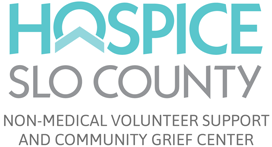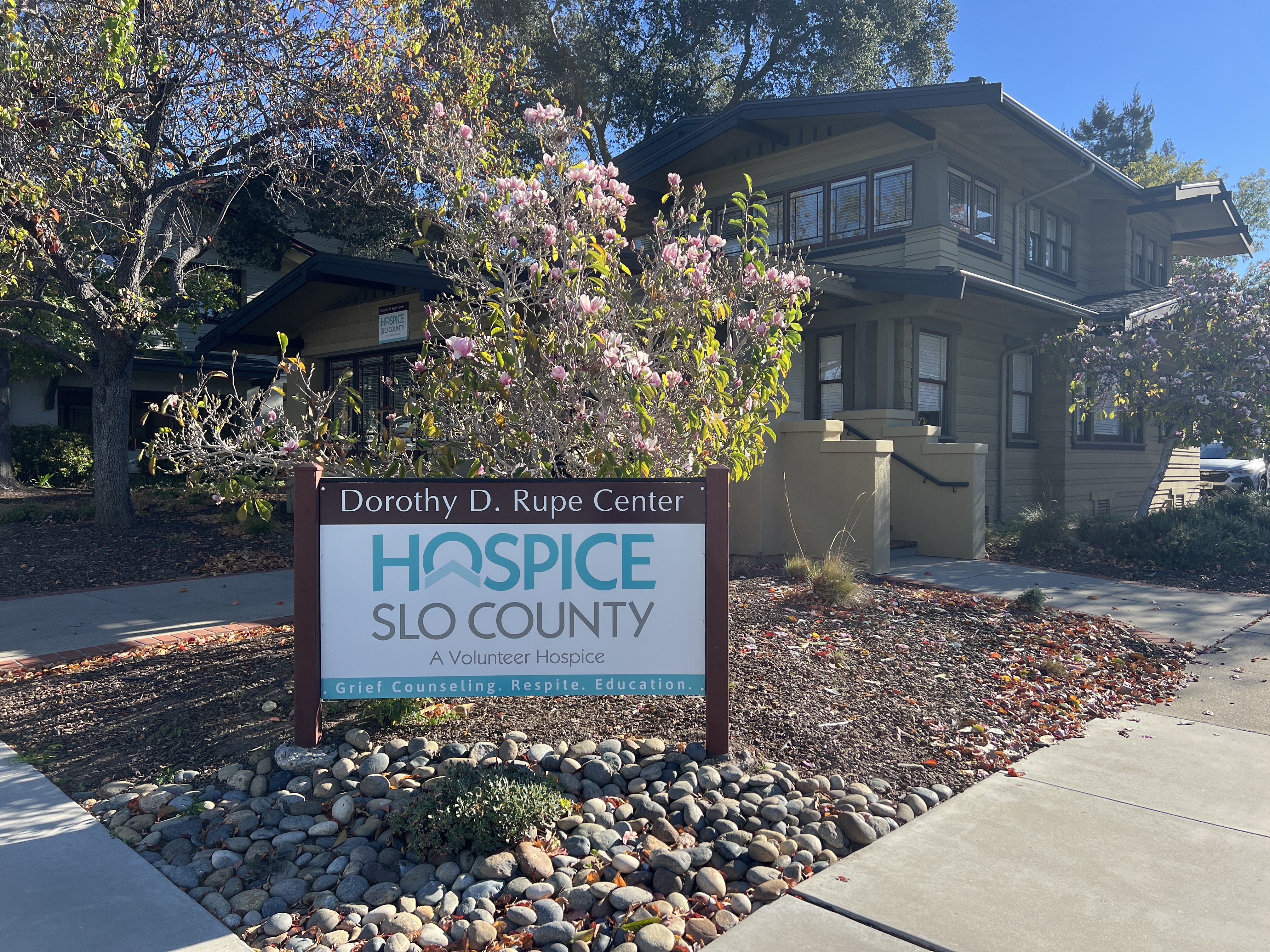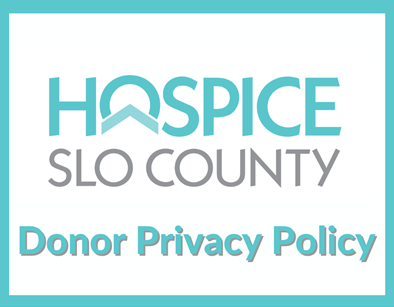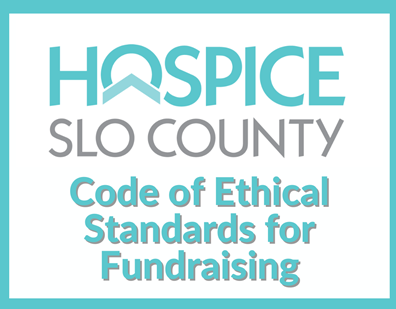Kris Kington-Barker, Executive Director emeritus of Hospice SLO County, shares her heartbreaking story about the WEIGHTY IMPORTANCE of having an Advance Care Directive and a POLST (Physician Orders for Life Sustaining Treatment) in place.
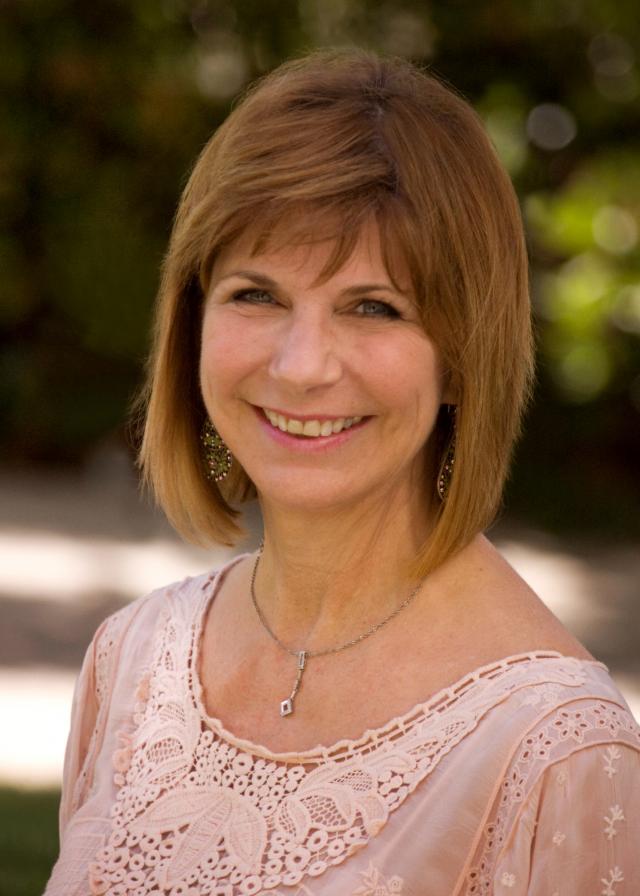
“Educating about end of life care and how each of us owes it not only to ourselves but also to our loved ones to make sure our wishes are thought out, expressed, and documented is a passion for me. Hospice SLO County offers assistance with accessing, understanding and completing Advance Healthcare Directives and POLST without charge. If you have an interest in getting started on the conversation, call (805) 544-2266.”
The past twelve weeks I have been largely sheltering at home. And like many of you, I have taken in more than my share of visuals of the devastation and toll of COVID-19 on the world. My first thoughts were gratitude that my mom and dad were no longer alive to face the fear and isolation of so many others who have been stricken by the novel coronavirus, separated from loved ones, struggling to live and dying with no one familiar around them. No one to speak for them, to honor their expressed end of life care wishes to healthcare workers or to be present loving them when they took their final breaths.
The images quickly carried me back to the ICU where my father spent his final nine days in 2009. That year, both my parents were in their mid-80’s and had been married for 59 years. They were inseparable and their overfed beagle was the third leg of their stool.
My father had bladder cancer in 2001 and survived after bladder removal. He almost learned to tolerate what he felt were the indignities of dealing with a stoma for his final years. He had severe emphysema resulting from smoking packs of cigarettes a day from the age of 12 until he had to hide his smoking from my mother in final decade of his life. My mother was an avid health magazine reader, had a dispensary of homeopathic meds, treatments, and vitamins that she was sure would keep them both alive for as long as they wanted. Attempts to discuss their end of life care wishes “should something ever happen to your health that you don’t plan for” were batted away by my mother quickly responding, “We talk about these things with one another and know exactly what each other wants”. Conversation over. Except at the end of 2008, as I was driving my father from the store, he casually turned from looking out the window and announced, “I’m done with treatments and surgeries and doctors”. Attempts to further engage this conversation only elicited contact with his blue eyes and a nod. Conversation over.
My father’s compromised lungs were vulnerable and the end of April he “developed a cold” that quickly became more severe from Friday night to Sunday. Both my parents insisted on him seeing his own physician Monday morning as a trip to the ER was “an absolute waste of time” per my mother. “They don’t know him; we will just sit around and wait, and they won’t do anything his own doctor won’t tomorrow morning”. It would have seemed sound logic except I could hear my father struggling to breath from the next room. At 5:00 am Monday morning I got the call, “Your father needs to go to the ER, please come take him right away”. I called an ambulance and sped the emergency room to meet it.
My father was alert when he was brought out of the ambulance and able to talk to the ER physician. He had no advanced care directive, no POLST (Physician Orders for Life Sustaining Treatment) but he had my mother by his side and their beagle waited in car just as she assured me would always happen. His oxygen level was dangerously low. The ER physician, who I had known for years in my career in hospital administration, came in to tell my dad it was quite possible he would soon be unable to breathe on his own and asked should that happen would he want to placed on a ventilator. My father shook his head “no”. For comfort the physician offered C-Pap, a method of delivering oxygen with a different mask that would be more forceful than the oxygen mask he currently had on. My father agreed. When his lab work came back it was clear he was septic, a potentially life-threatening condition caused by the body’s response to infection. The body normally releases chemicals into the bloodstream to fight an infection. Sepsis happens when the body’s response to the chemicals triggers changes that can damage and shut down multiple organ systems. My father was quickly taken to the ICU.
As he was being transferred from the transport gurney to the ICU bed the ICU hospitalist entered. While she was “examining” him the door to his room was shut and we waited outside. When the door reopened and all, but one nurse left the room, my father was unconscious and on a ventilator. I was torn between storming the hospital in search of and confronting the hospitalist while demanding she remove him from ventilation immediately or holding onto my mother to keep her upright. Over the next 8 days my father’s body went through one system failure after another. His heart was irregular, blood pressure too high and then too low. His blood chemistry was a mess. His kidneys began to shut down, his lungs were becoming opaque as they filled with fluid. All the while he was pumped full of multiple drugs, more machines added, and the ventilator kept going.
My mother had difficulty staying for any length of time. It was warm out, and she worried about the dog sitting in the car, needing to go out or eat. I remained affixed to a recliner that became my bedroom for the rest of my father’s stay. Mom would visit multiple times each day and would always be reassured by nursing that something was “looking a little better” or “could respond to the X drug that had been added, we’ll wait and see”. She was sure he would “beat this”. On day 3 she showed up with my dad’s house coat and slippers to wear when he “gets to go home”. I left them alone for a little while and hid in the public bathroom for my breakdown.
On day 5, the hospitalist who placed my father on the ventilator finished her week shift and a new hospitalist came on. When he rounded my mother wasn’t present. I asked if he would be willing to have an honest conversation with me, he said he would. We reviewed my father’s chart together and talked about the likelihood of a man who had compromised health before becoming septic and having system failure being able to return to his life as he knew and liked it. The answer was “none”. If all went “right” my father could survive his sepsis and be taken off the ventilator eventually. He may be able to transfer out of ICU and eventually into a nursing home. He may or may not ever be able to leave a care facility and return to his own home and if he did, it would be with less capacity than he had before getting septic. For the next 8 days the physician continued to keep me updated and had gentle conversations with my mother to edge her toward the same understanding but never able to convince her my father was not going to walk out the hospital and return to how his life was before.
On day 8 I asked the physician to join us for a family meeting. My brother and daughter had come in from out of town and had a chance to spend time with dad. The physician was open, kind, honest, gentle in presenting dads’ situation. Sadly, because of a lack of POLST or Advance Health Care Directive, the only person who could make the final decision whether to remove life support was my mother. My mother asked the questions again and again. “How can you SURE he isn’t going get better and it will be just like before the illness?” And made statements like, “I don’t care if he never gets out of a bed again, I’ll take him home and take care of him. I’ve always taken care of him. I can’t lose him”. It was heart breaking. She finally turned to me and said, “what would you do?” I recounted the comment my dad had made, “I’m done with treatments and surgeries and doctors” and that I believed he did not want to continue a life with less capacity than he felt held quality for him. My mother’s response was, “You’re just making that up!”.
The physician asked everyone in the room to envision my father standing at the door to his ICU room and looking at himself on the bed. “What would he tell you to do?”. We each answered that question that he would not want his current circumstances to continue. My mother was silent. The physician suggested he could lighten the sedation for dad and he might become conscious enough for us to ask him but it would need to be quick because he required the ventilator to breathe and may also find it very uncomfortable when more alert. We agreed to try it. The short acting sedative he was getting was reduced while we waited. Amazingly, dad’s blue eyes flew open. I explained that we were trying to make a decision for him and didn’t know if it was the right one. Did he want to be taken off the ventilator even if it meant he would die. He slowing blinked. Everyone in the room saw it. Except my mother, who if she did, didn’t register it due to her state of shock and pain about the decision she had to make. After dad was comfortable again, we met outside his room and my mother asked if he would be in pain being taken off the ventilator. The physician assured her dad would be given medication to keep him comfortable and to keep from feeling like he was suffocating. We could stay with him. She looked at me and asked, “this is what you would do?” I nodded yes.
My father was taken off life support and most of the myriad of machines attached to him removed. We could finally all get close to him without some tube or medical contraption in the way. He was visited frequently by the nursing staff, kept clean, comfortable and never gain consciousness again. He died 12 hours later; we were all there except my mom who couldn’t bare to be.
I use a much shorter version of this story when I talk to people about the importance for each of us to consider, in the event a decision would have to made for us about what we would want for our end of life care … what do WE want the choices to be? WHO is the person that will be able to state them for us when we cannot speak for ourselves?
The lack of a written direction, in my father’s words and signed by him, left my mother and I in a place we never recovered from together. When she was consumed by her pain and grief she blamed me for “killing” my father and expressed sureness he would have survived had we not interrupted the process. There were times when I questioned, “did I really see his eyes blink?” “Is that what he meant; did I get it wrong?”
My mother carried her intense anger and grief for the next 6 years until she died 4 days after having a major stroke. She was found on the kitchen floor of her independent living apartment after I called them to say her friend was unable to reach her for the past day. Fortunately, the year before, on her 90th birthday she suffered a lighter stoke and in the last year of her life we were able to have deeper conversations about what fears she had about her own death. She knew she would likely have a stroke; her biggest fear was being paralyzed or unable to care for herself completely. We completed her advanced healthcare directive and her POLST and had the POLST signed by her physician. She stated her treatment wishes should a massive stroke occur. She wanted no treatment and wanted comfort measures only. After joining her in the ER, I gave my copy of her POLST to the physician and he ordered “comfort care”. Mom died 4 days later, clean, comfortable and I spent them in the recliner by her bedside. I did not have a single doubt she received the end of life care she wanted.
Educating about end of life care and how each of us owes it not only to ourselves but also to our loved ones to make sure our wishes are thought out, expressed, and documented is a passion for me. Hospice SLO County offers assistance with accessing, understanding and completing Advance Healthcare Directives and POLST without charge. If you have an interest in getting started on the conversation, call (805) 544-2266.




